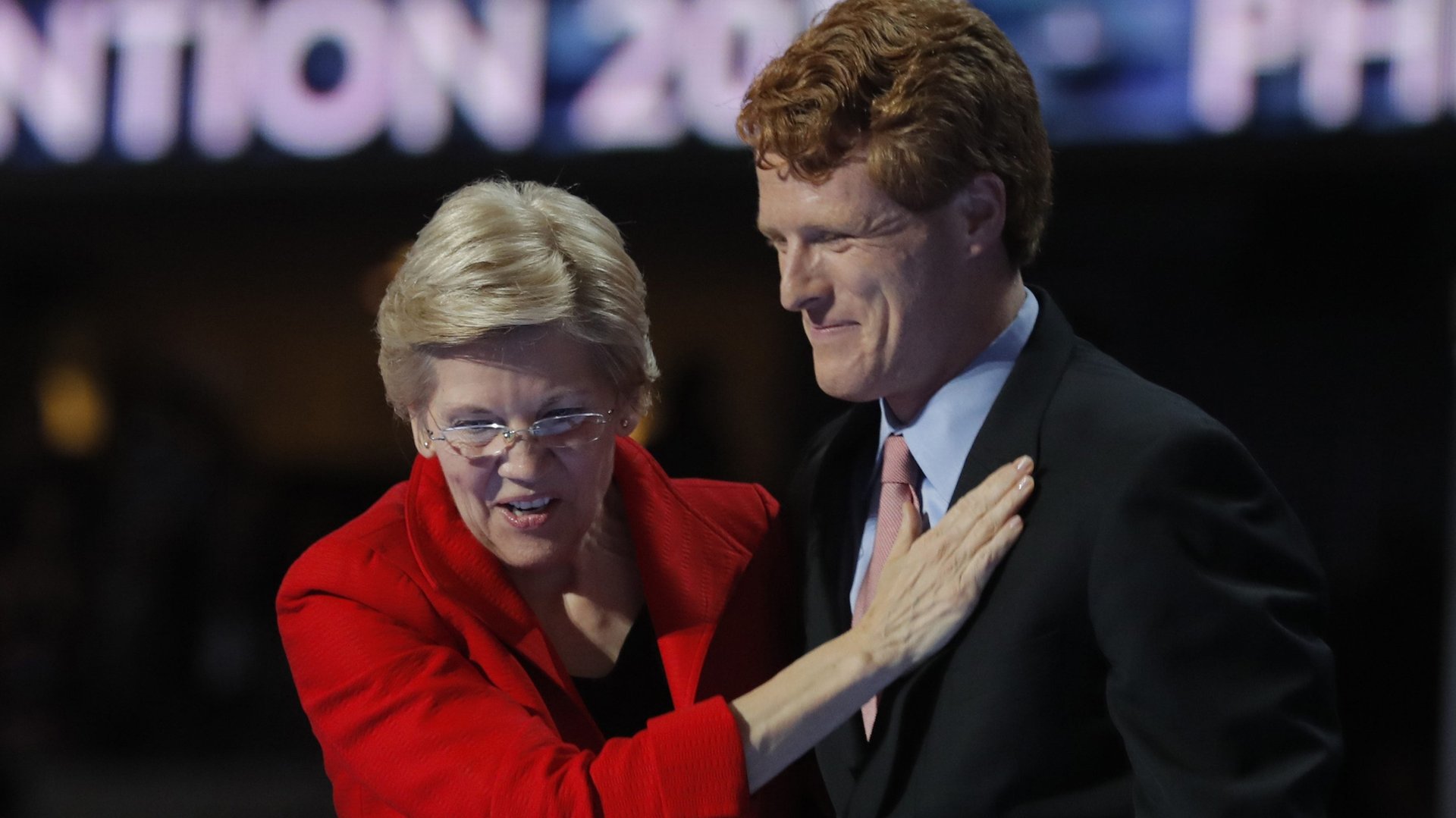Is JFK’s millennial grandnephew the past or the future of the Democratic party?
The response to Donald Trump’s State of the Union speech tonight (Jan. 30) will be delivered by Joseph Kennedy III, 37-year-old grandson of senator Robert F. Kennedy, who has spoken eloquently against repealing Obamacare and tax cuts for the rich on the House floor as a representative from Massachusetts.


The response to Donald Trump’s State of the Union speech tonight (Jan. 30) will be delivered by Joseph Kennedy III, 37-year-old grandson of senator Robert F. Kennedy, who has spoken eloquently against repealing Obamacare and tax cuts for the rich on the House floor as a representative from Massachusetts.
“You don’t sabotage a health-care system and then leave in its wake devastation and destruction to score political points,” but “Trumpcare does,” he said during one memorable speech this past June, as Republicans tried another attempt to gut the Affordable Care Act passed under Barack Obama. “The America that I know would never turn its back on a stranger in need,” he said. “Trumpcare does.”
Kennedy’s appeal to Americans’ better nature harkens back to a gentler time, before “F-ck your feelings” was an unofficial presidential campaign slogan, and a cable news network devoted itself to broadcasting scathing propaganda to support a besieged White House. House minority leader Nancy Pelosi reportedly chose Kennedy for tonight’s speech because he doesn’t have immediate presidential ambitions, despite the reverence many Americans hold for his granduncle, president John F. Kennedy. Picking a millennial who is a white male Harvard Law grad and Peace Corps volunteer seems like a safe choice for the Democrats—but it may actually be a risky one.
Heated debate continues within the party about “identity politics” and whether emphasizing cultural, racial, and gender identity was part of the reason that Hillary Clinton failed to capture the white voters she needed to win the 2016 presidential race. “Joe Biden would have won,” remains a familiar criticism, and if you squint a little Kennedy looks a bit like a like Biden, just around 40 years younger. Still, Kennedy’s voting record shows him to be a traditionally middle-of-the-road Democrat, a problem for a party whose congressional leaders are decades older than the populations they represent.
Should a centrist white man speak for the Democratic party, when there’s plenty of pressure for it to move out of the center? After the defeat of Republican Roy Moore in the Alabama Senate race, black voters are rightfully demanding a greater voice in the Democrats’ decision-making process. Growing grassroots groups like the Progressive Democrats are pushing for the party to upend the status quo on issues such as refugees and government-supported child care. While Kennedy supports transgender rights, he’s voted repeatedly against that most mainstream of progressive causes, marijuana legalization.
For his part, Kennedy appears to be merely trying to set expectations low ahead of the speech.
“I’m just hoping I can make it on and off the stage without tripping, dehydrating or ruining my career,” he told the Washington Post.